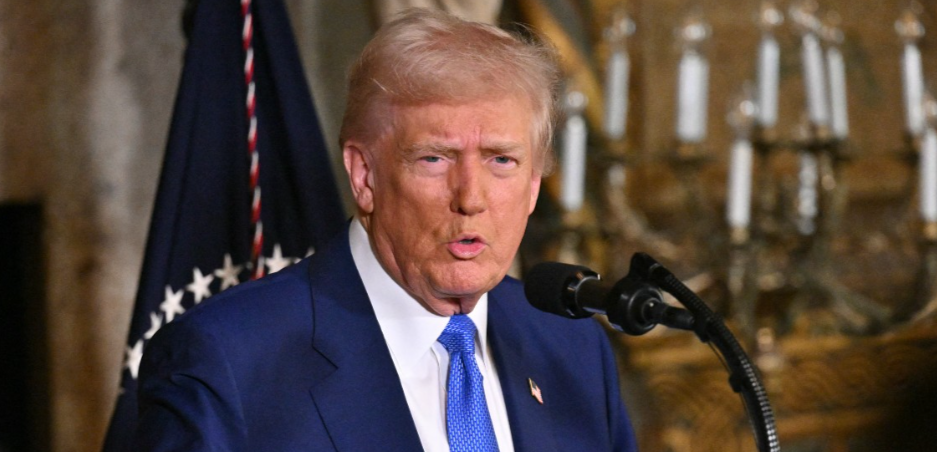Trump Says Musk Will Not Take Part In Space-Related Government Decisions

President Donald Trump stated that billionaire Elon Musk would not be allowed to participate in space-related government decisions to prevent any potential conflicts of interest.
“So anything to do with possibly even space, we won’t let Elon partake in that,” Trump told reporters. When questioned about certain Department of Government Efficiency staffers potentially facing conflicts of interest due to their ties with Musk’s SpaceX and the FAA, he responded, “I’m just hearing about it.”
Previously, the White House maintained that Musk's various business interests would not interfere with his role in DOGE, which was established to cut federal government costs.
On Monday, Trump’s team clarified that Musk was serving as a senior adviser to the president but was not directly employed by DOGE. Furthermore, they emphasized that Musk did not hold decision-making authority.
Since Trump commenced his second term last month, DOGE has expanded its influence across federal agencies. As part of an extensive government restructuring effort aimed at reducing excessive expenditures, Musk was tasked with identifying wasteful spending, a move that has already resulted in significant job reductions.
“Elon is, to me, a patriot. So you know, you could call him an employee, you could call him a consultant,” Trump remarked about Musk on Tuesday.
“You could call him whatever you want, but he’s a patriot,” he added.
Elon Musk, the Department of Government Efficiency chief, along with his team, has now gained access to crucial financial information from multiple federal agencies following a legal victory on Tuesday. Meanwhile, a DOGE team member is poised to obtain data regarding Internal Revenue Service operations.
“The I.R.S. is preparing to give Gavin Kliger, a young software engineer working with [DOGE], access to sensitive taxpayer information as a senior adviser to the I.R.S.’s acting commissioner. The I.R.S. is still working out the terms of his assignment,” The New York Times reported.
Concerns have been raised by critics who argue that this access could provide Musk and his associates with unprecedented oversight. Lily Batchelder, a Treasury Department official under the Biden administration, pointed out on X that she could not recall any political appointees ever having such access to the IRS database, according to the outlet.
A significant concern revolves around the possibility of leveraging this access to target political opponents or expose private citizens’ financial information. Batchelder cautioned that such actions might violate federal laws designed to prevent executive branch interference in taxpayer audits. Meanwhile, Democratic Senators Ron Wyden of Oregon and Elizabeth Warren of Massachusetts have requested additional details on the scope of the access granted, as noted by The Times.
While Democrats and their allies in mainstream media persist in asserting—without presenting evidence—that Musk and his DOGE team will be “accessing sensitive taxpayer information” and could disclose it, The Times article acknowledged that a similar incident recently occurred—to Musk himself. His tax returns from 2014-2018, along with those of other billionaires criticized by the left, were leaked to ProPublica in 2021 by an IRS official.
President Donald Trump, who appointed Musk to his current role, continues to support the Tesla and SpaceX CEO’s objectives.
“Waste, fraud and abuse have been deeply entrenched in our broken system for far too long,” White House spokesman Harrison Fields stated. “It takes direct access to the system to identify and fix it.”
Meanwhile, U.S. District Judge Tanya Chutkan on Tuesday dismissed a request from 14 Democratic state attorneys general to impose immediate and sweeping restrictions on Elon Musk’s Department of Government Efficiency (DOGE).
Led by New Mexico, the coalition of states argued that Musk’s substantial role within DOGE is unconstitutional since he was not confirmed by the Senate. They sought to restrict DOGE from accessing seven federal agencies, according to The Hill.
However, Chutkan rejected their request at this stage, concluding that they had not provided sufficient proof of irreparable harm.
“Plaintiffs legitimately call into question what appears to be the unchecked authority of an unelected individual and an entity that was not created by Congress and over which it has no oversight,” Chutkan stated in her ruling.
“In these circumstances, it must be indisputable that this court acts within the bounds of its authority,” she continued. “Accordingly, it cannot issue a TRO [temporary restraining order], especially one as wide-ranging as Plaintiffs request, without clear evidence of imminent, irreparable harm to these Plaintiffs. The current record does not meet that standard.”
In a footnote, the judge suggested that the Justice Department may have overstated DOGE’s level of influence over personnel matters. “Defense counsel is reminded of their duty to make truthful representations to the court,” Chutkan noted.
Since Trump’s inauguration, Musk’s Department of Government Efficiency (DOGE) has aggressively placed personnel within federal agencies, intending to eliminate trillions in government spending—an effort that has already led to legal challenges.
This rapid transformation has placed Chutkan, an Obama appointee, at the center of yet another legal dispute involving the president. Chutkan had previously overseen the now-dismissed Jan. 6 criminal case against Trump.